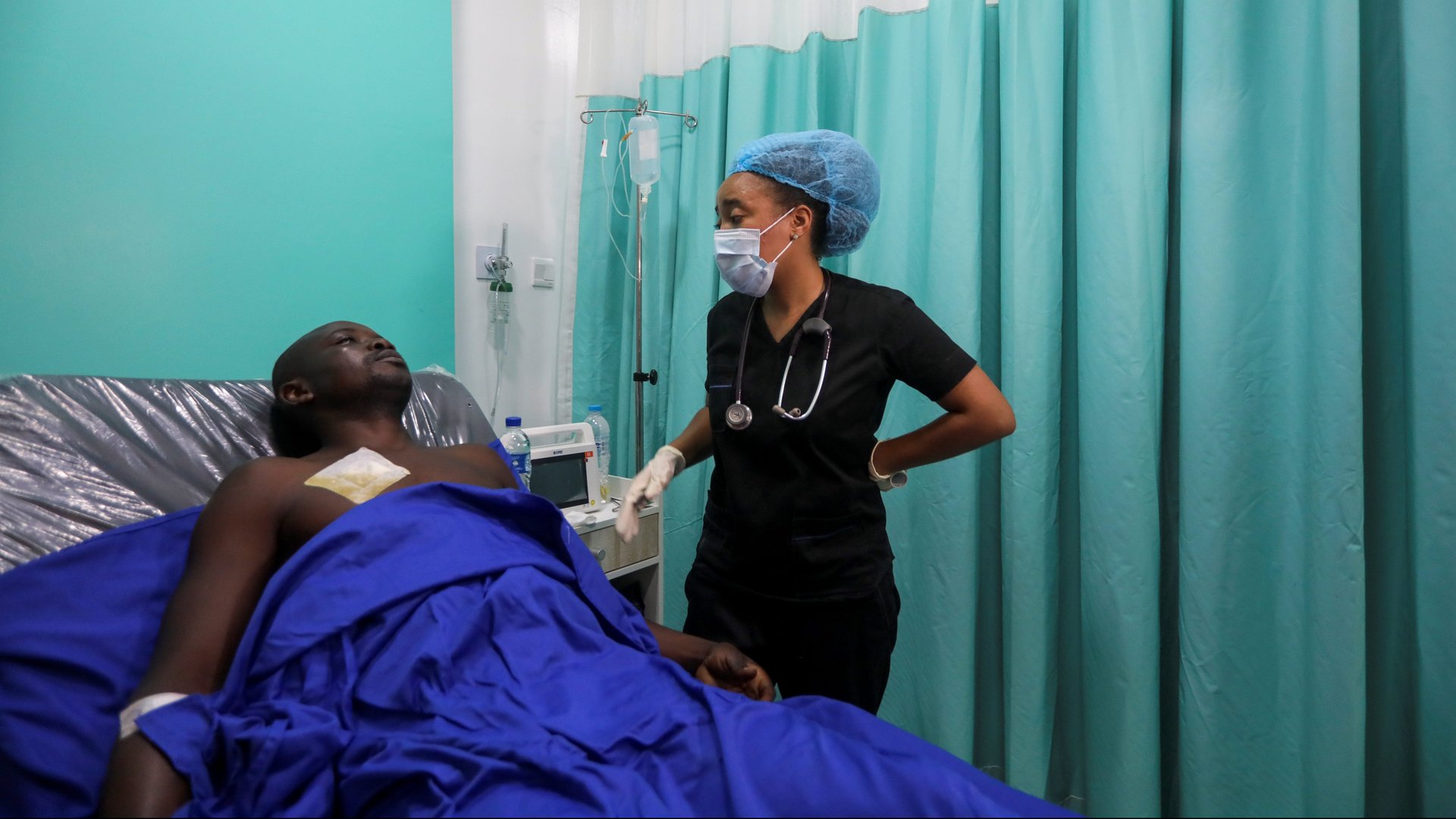EndSARS victims had loved ones. They want Nigerians to never forget
Lai Mohammed, Nigeria’s minister of information, continues to demand an apology from CNN, Amnesty International, and other organizations or individuals that insist that the Nigerian Army shot at and killed anti-police brutality protesters on Oct. 20 last year.


Lai Mohammed, Nigeria’s minister of information, continues to demand an apology from CNN, Amnesty International, and other organizations or individuals that insist that the Nigerian Army shot at and killed anti-police brutality protesters on Oct. 20 last year.
Mohammed’s drumbeat of denial—”massacre without blood or bodies” as he calls it—has garnered dancers, especially on Twitter. In the week leading up to the EndSARS memorial, many joined the minister in asking for names of the dead, and testimonies from victims’ loved ones. The more audacious, if sinister requests were for pictures of slain bodies.
It may be impossible to convince people determined not to believe that last year’s events were a fatal tragedy. But on the first anniversary, new stories continue to be told by those who mourn victims.
A mother lost her breadwinner
On this week’s episode of I Said What I Said, a podcast followed by many young people in Nigeria for its charismatic co-hosts, a mother and son described how they went to the Lekki toll gate to search for a relative who had joined the EndSARS protests.
They had received a call that this relative, the family’s eldest son and breadwinner, had been shot. After calling his number several times without receiving a response, mother and son went to the Lekki toll gate between 4 and 5am on Oct. 21 last year.
“When we finally saw my brother, he was still alive and breathing, but you could tell he was unconscious,” the son, whose name is given as Fatai, said. They tried to save the victim by rushing him to a hospital, but delays over getting a police report demanded by the hospital proved fatal. Fatai’s brother died from his gunshot wounds at dawn in his mother’s hands, she said.
The family decided not to seek justice at the judicial panel of inquiry set up by the Lagos state government in the aftermath of the protests’ bloody end. But that was because they thought it was better to preserve what resources they had for their wellbeing, not because they were not grieving.
“If anyone claims no one died, that’s a lie. If you were affected by what happened that day, you’ll be able to tell the story properly,” Fatai said.
A brother wants to turn back time
Nathaniel Solomon, who spoke on camera to the BBC for a feature published this week, said he lost his younger brother Abouta to the army’s shootings at Lekki. “He’s the one who took my children to school and brought them back.”
Like Fatai and his mother, Nathaniel learned about his brother’s shooting from a phone call, and fainted at the scene when he found Abouta had been shot in the ribs. Nathaniel returned his body to their hometown in northeastern Nigeria for burial days later.
“If I knew something bad would happen to my brother, I would [have told] him not to go anywhere,” Nathaniel said.
Some families await closure
Unlike Nathaniel, not all grieving families have seen the bodies of relatives who went missing after the EndSARS shootings at Lekki and other parts of Lagos.
Elisha Sunday, who also spoke to the BBC, has still not seen his brother Victor who was pictured in an incapacitated position at the protests. Sunday’s search at Lagos hospitals were futile, but he retains hope.
“I would like to see my brother’s dead body because he’s my brother and I’m supposed to bury him.”
Many victims are yet to be identified by name.
In the second of a three-part report by Nigerian journalist Fisayo Soyombo, founder of the Foundation for Investigative Journalism, at least 17 unnamed people are said to have died from EndSARS-related shootings last year. Soyombo spent 10 weeks documenting the death trail, in some cases using undercover methods to get information.
It is not clear if and when each body will be united with their families as some were taken away in army trucks, according to Soyombo’s report. For families like Sunday’s, the hope is that Oct. 20 will remain fresh in the minds of young Nigerians, at least until their loved ones can be peacefully laid to rest.
Sign up to the Quartz Africa Weekly Brief here for news and analysis on African business, tech, and innovation in your inbox.